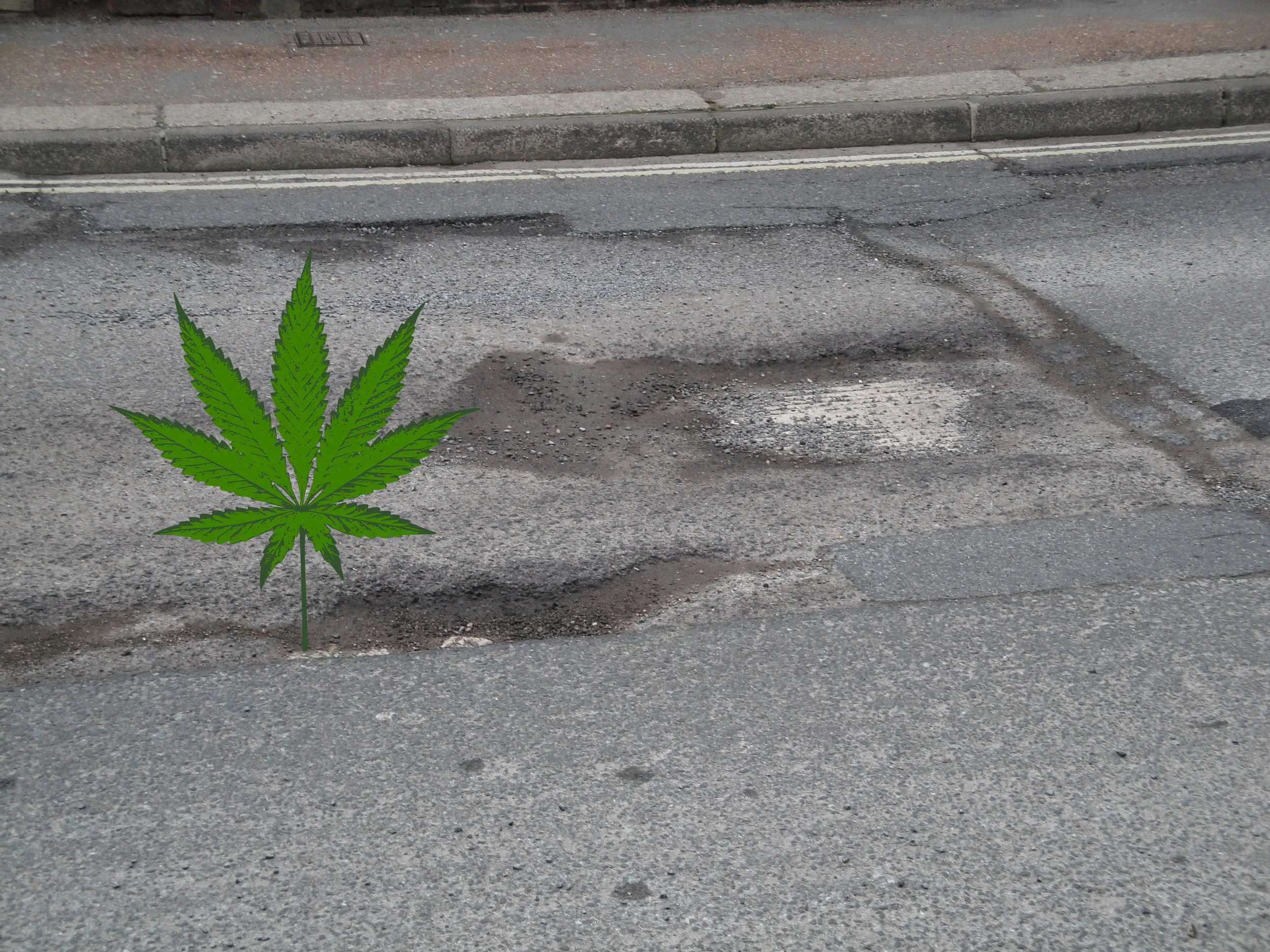Pot for potholes
Legalizing and taxing marijuana would take state revenues higher
(Wikimedia Commons)
By Ted Cox
“A chicken in every pot,” is one old political slogan. Now how about, “Pot for every pothole.”
Democratic gubernatorial candidate J.B. Pritzker said last month in Decatur that, if elected, he’s committed to a major new capital spending bill on statewide infrastructure.
There’s no doubt the state needs it. The Illinois Economic Policy Institute put out a report today pointing out that Illinois hasn’t passed a major capital bill in 10 years. In that time, state roads, buildings, and schools, including universities, have all suffered.
ILEPI estimates that deferred maintenance needs in state buildings have risen $550 million a year, that universities and community colleges need $5.5 billion next year, public schools $7.5 billion (about $18.5 million a district), and that the Department of Transportation needs $11 billion through 2023 “to bring all road miles into an acceptable condition and repair all backlog bridges.”
The report concludes: “Capital investment in Illinois’ infrastructure systems is crucial to promote a thriving and economically successful state. Funding has been inadequate in recent years, and with the lack of any new capital funding proposals, the state’s residents will continue to feel the effects. Education, health, and corrections facilities will continue to be poorly maintained, roadways and transit systems will continue to deteriorate and be congested, and classrooms will continue to be overcrowded.”
The major capital bill being proposed would only begin to address those needs.
With the minimal federal matching funds in the most recent U.S. infrastructure proposal from President Trump, however, Illinois would still have to pony up 80 percent of the total cost. Pritzker estimated that it would require raising $1 billion.
That’s a nice, round figure. Where would it come from? Pritzer pointed to his proposal for a graduated state income tax, additional state borrowing if it can improve its credit rating, and — perhaps key to that — taxes raised by legalizing marijuana.
The notion of legalizing pot in order to take tax revenues higher is just as interconnected as the notion of spending on infrastructure to both provide jobs and improve public resources for the future. Since Colorado and Washington legalized pot in 2012, five other states have joined in, as Massachusetts goes legal later this summer.
How much revenue is actually raised by legalizing pot? It’s complicated, and Colorado for one is about to actually cut its tax rate in a bid to get recreational users to leave their old dealers and the black market behind and head to the nearest state dispensary instead.
But a firm report shows that Colorado raised $500 million just in the first three and a half years of legalization.
Pritzker has estimated Illinois could raise between $350 million and $700 million a year. Does that seem high? Well, Illinois may or may not be as weed-wacky as California, but Gov. Jerry Brown estimated earlier this year that state would pocket $643 million just in 2018.
I want to take you higher, indeed.
Gov. Bruce Rauner has said it would be a “mistake” to legalize it, and has resisted even incremental changes to the state’s medical-marijuana program, although he did sign a decriminalization bill into law.
Rauner too has said he'd like to pass a major capital bill, but thus far he's refused to support a way to raise revenues to pay for it, such as hiking the gas tax.
Still, in an era when government needs revenue to provide the services voters want, more politicians nationwide are saying, "Don’t Bogart those pot taxes, pass them over to me."

